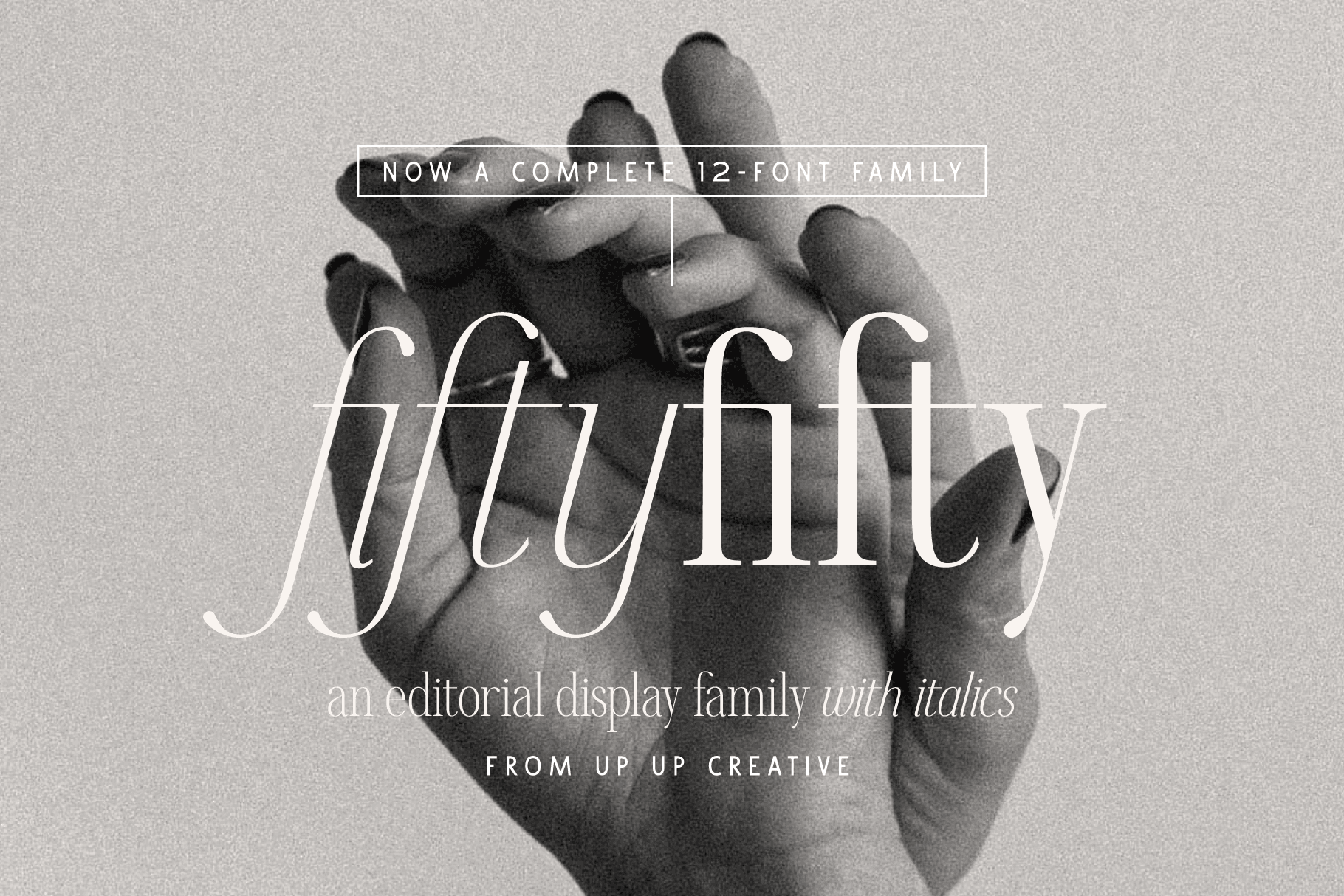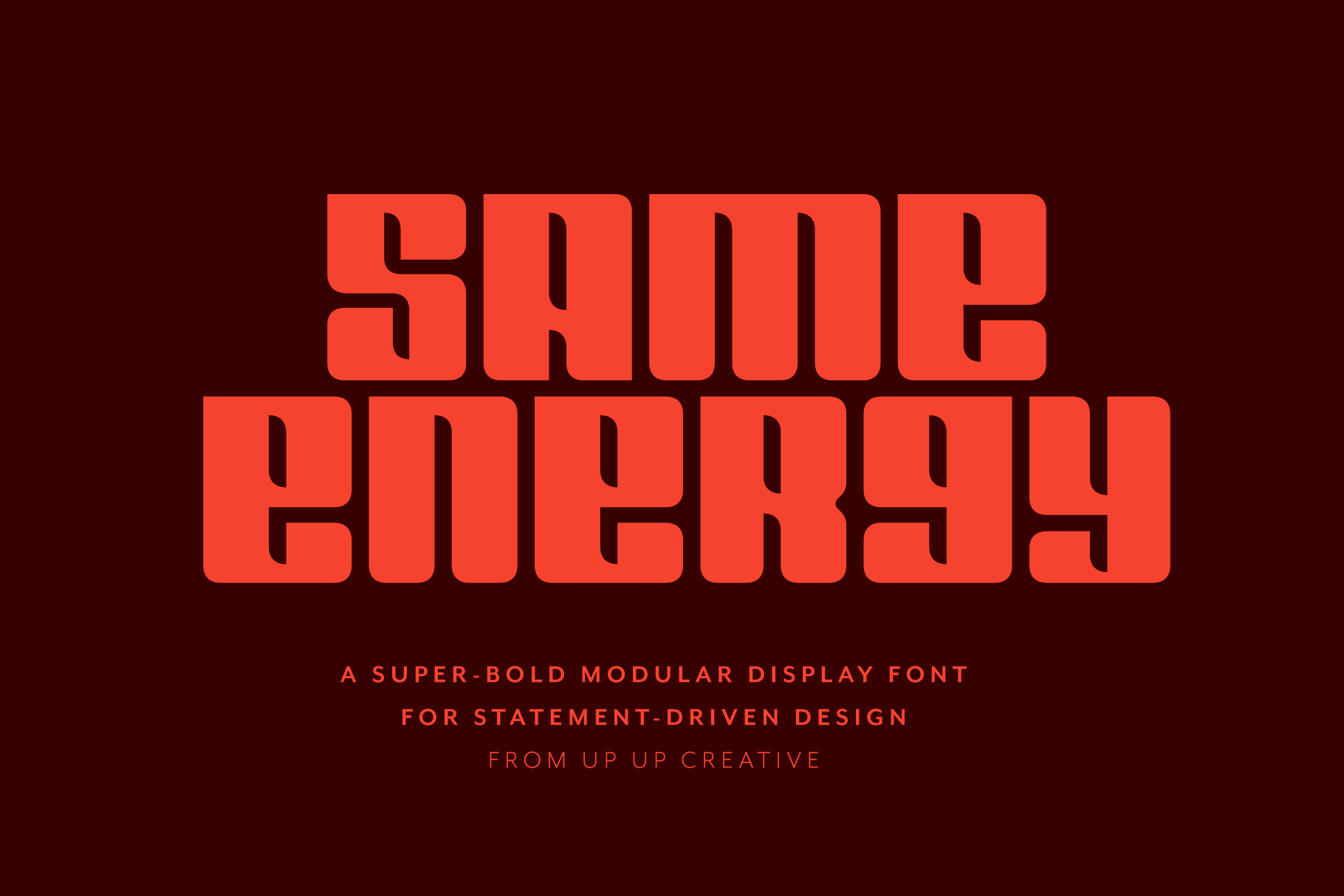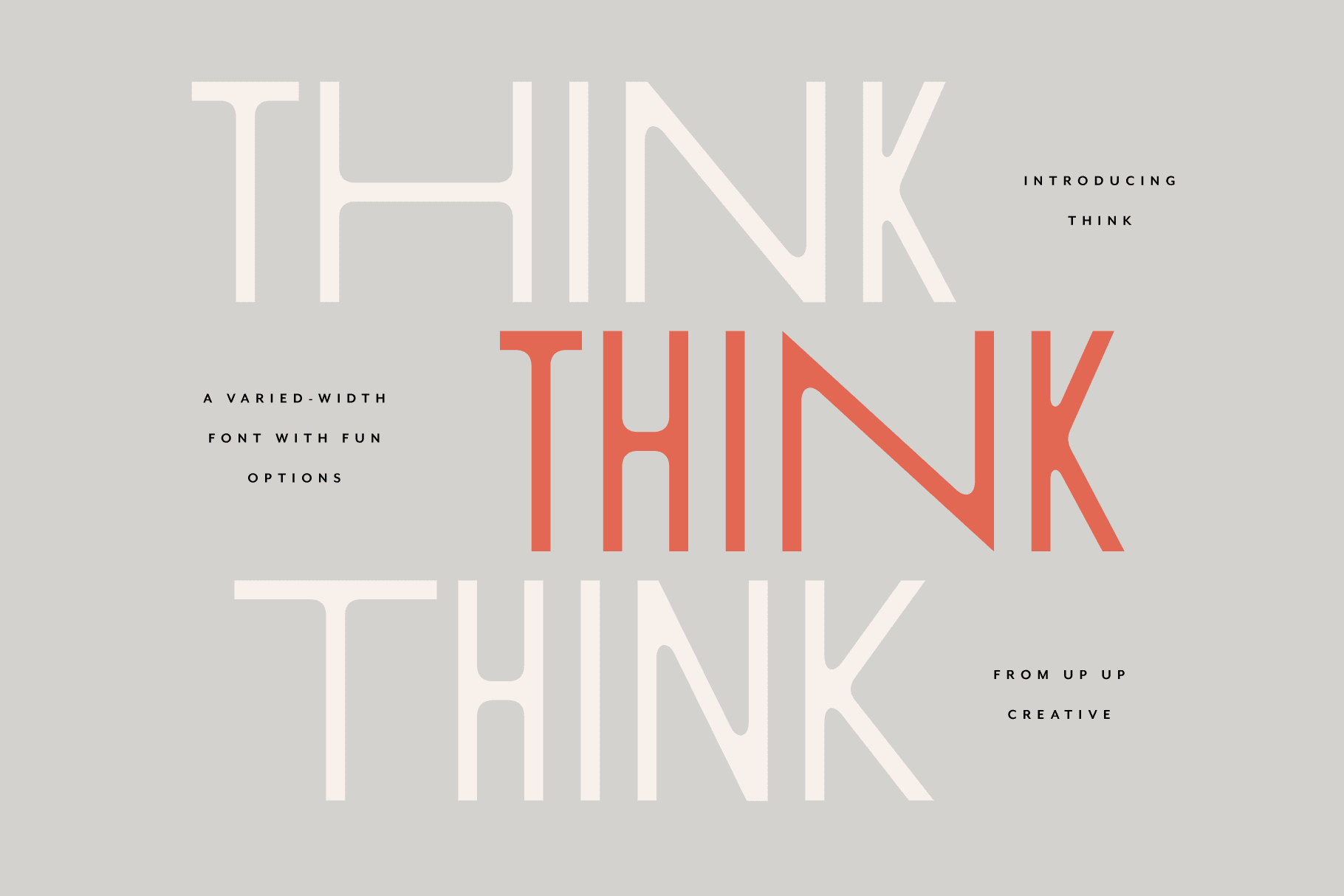Licensing Cheat Sheet
The following is a brief summary of the different types of licenses I offer here on this site. This is not a comprehensive list of all possible licenses, but it covers the most common use cases I'm approached about (with the exception of broadcast licenses, which I always negotiate individually).
If you don't see your use case here, there is a fairly extensive licensing-specific FAQ section below. If you read through that and still aren't sure what you need, there's a contact form at the bottom of this page.
Desktop
- Desktop programs and cloud-based apps (like Canva and Adobe Live)
- Logos, social media, packaging, and physical products (up to 100,000 prints or reproductions; more than this requires a large volume license extension)
- Websites (only in rasterized form)
- Not for use in template products
Web
- Websites you own
- No tracking JavaScript required
- Unlimited pageview option available
- Not for use in template or print-on-demand products
Template
- For when your customer is going to personalize a template product
- One license per template product
- Can be embedded but not extractable
- Cannot include font files in download
App
- One license per app
- Can be embedded but not extractable
- Not for use in template or print-on-demand products
- No source code distribution
Commercial Server
- For use on a commercial server to customize multiple products
- One license per production server
- Can be embedded but not extractable
- Unlimited end user option available
ePub
- One license per title
- Can be embedded but not extractable
- Not for use in template or print-on-demand products
- Not for use in executable files
Special Cases
Custom
Sometimes you need a custom license. Maybe you want to bundle a lot of different licenses together at a reduced rate. Maybe you need an unlimited license. Or maybe you need to license a font for digital ads, OOH/DOOH campaigns, broadcast, or something else. That's no problem. Just get in touch.
Educational & Non-Profit
I occasionally offer special pricing or custom licensing options for nonprofit organizations, students, and educators. If that’s you, I’d love to hear more about your project or how you plan to use the fonts. Just send me an email with a few details and I’ll get back to you personally.
General Licensing Questions
These questions cover how to use fonts in desktop apps, cutting software, and graphic tools like Canva.
Do you offer bulk pricing if I buy multiple licenses?
Do you offer bulk pricing if I buy multiple licenses?
Yes — and the discounts are applied automatically at checkout.
- Buy two licenses (for example, Desktop + Web), and you’ll save 10% on both.
- Buy any three items — whether that’s fonts, licenses, or a mix — and you’ll save 30% on all three.
No codes, no emails — just easy, automatic savings.
I want to use a font in a program like Adobe Photoshop, Microsoft Word, or Corel Draw.
I want to use a font in a program like Adobe Photoshop, Microsoft Word, or Corel Draw.
You’ll want a standard desktop license for that. It covers most traditional software installed on your computer.
I want to use a font for my logo.
I want to use a font for my logo.
You’ll need a desktop license. If you also want to use the font on your website (in live text, not just graphics), you’ll also need a web license.
A special note about trademark and logos. If your logo is ONLY a font, without any modifications, you won't be able to trademark that logo. That's true whatever font you use, not only for Up Up Creative fonts.
If you need to be able to trademark, you'll have to add modifications. Consult an attorney who specializes in intellectual property / copyright / trademarks for more info.
I want to use a font with my vinyl cutting software (like Cricut Design Space, Silhouette Studio, or Mint Studio).
I want to use a font with my vinyl cutting software (like Cricut Design Space, Silhouette Studio, or Mint Studio).
A desktop license is what you need. Be sure to use the files from the “PUA-Encoded” folder in your download — those versions ensure special characters and alternates are easily accessible.
I want to upload a font to Canva, Adobe Live, PicMonkey, or GoDaddy Studio to make graphics for myself or my business.
I want to upload a font to Canva, Adobe Live, PicMonkey, or GoDaddy Studio to make graphics for myself or my business.
You’d still just need a desktop license. These platforms function like desktop apps, even though they’re browser-based.
If you're making templates that you will sell to other people to use in Canva or a similar web-based app, you'll also need a template license.
I want to use a font for static images on my website.
I want to use a font for static images on my website.
You can create those images using a desktop app or Canva-style tool, so a desktop license covers this use. If you also want to use the font in your site’s live text (like headlines or navigation), you’ll need a web license too.
Website Use
Here’s what you need to know if you’re planning to use fonts on your own website — or in website templates you’re selling.
I want to use a font for body text, titles, and headings on my own website.
I want to use a font for body text, titles, and headings on my own website.
You’ll want a web license for that.
This is the license you'll want if you're uploading the fonts to Shopify, Squarespace, WordPress, Wix, or something similar as well as if you're hosting the website yourself.
Can I use a font in a website template that I’ll be selling (like ShowIt, WordPress, or Shopify themes)?
Can I use a font in a website template that I’ll be selling (like ShowIt, WordPress, or Shopify themes)?
You sure can! You’ll need a Commercial Template license. One license per template you plan to sell. You can embed the fonts, but you can’t distribute the font files themselves — instead, provide a link for the end user to purchase an appropriate license.
I'm designing a website for a client. Do I need a license for me and one for the client?
I'm designing a website for a client. Do I need a license for me and one for the client?
In most cases, only the end user (your client) needs to hold the license — but how you handle it depends on how you're delivering the final product.
- If you're just creating static images (like a logo or social media graphics), you can license the font yourself. Your client doesn’t need a license, as long as they don’t receive the font files.
- If you're building a live website that uses the font in body text or headings, your client should be the one to purchase the web license, since they’re the one using it long-term.
- If you're creating a website template to be resold to multiple clients, you'll need a Commercial Template license (and possibly multiple licenses, depending on how many templates you're selling).
If you’re not sure which scenario fits, feel free to email me with a quick description of your project.
Do you offer bundles or discounts?
Do you offer bundles or discounts?
I usually have some kind of sale running on something somewhere, haha. Join the email list for the latest on promotions.
Even better, you can also build your own bundle and get an automatic discount any time.
Here’s how it works:
If you buy a second license type for the same font (for example, Desktop + Web), you’ll automatically get a 10% discount on both licenses. No code needed.
OR:
Purchase any three products and automatically save 30% on your whole order. Again, no code needed.
I do also sometimes offer discounts for students and non-profits. Contact me with the details of your educational or non-profit project for special pricing.
Customizable Templates & Customer Use
These questions cover when your customers (a third party to the license) will be customizing a design or product that uses the font.
I want to use a font in a Canva template that I’ll be selling.
I want to use a font in a Canva template that I’ll be selling.
You’ll need a Commercial Template license — one for each template you offer for sale.
I want to use a font in a Corjl or Templett template that my customers will customize.
I want to use a font in a Corjl or Templett template that my customers will customize.
You’ll need a Commercial Template license here too — again, one license per template.
I want to upload a font to a customer-facing server to allow personalization of multiple products (like on Minted or Shutterfly).
I want to upload a font to a customer-facing server to allow personalization of multiple products (like on Minted or Shutterfly).
If you work for a company like Minted or Shutterfly and want to make an Up Up Creative available on a commercial server for customers to use on multiple products or on a large scale, you'll need a commercial server license.
I’m not sure whether I need a Commercial Template or a Commercial Server license. Can you help?
I’m not sure whether I need a Commercial Template or a Commercial Server license. Can you help?
Great question! Here's a quick breakdown:
- If you’re distributing template files to customers: Commercial Template
- If you're selling just one customizable product: Commercial Template
- If you're offering multiple customizable products through a server: Commercial Server
Still unsure? Email me and I’ll help you sort it out.
Publishing, Apps, and Media
These questions apply if you’re embedding fonts into digital files, apps, or video content.
I want to use a font in a book. What license do I need?
I want to use a font in a book. What license do I need?
If you're using the font to design and typeset a book, or for a book cover (or both), you'll typically need a desktop license. If you expect your print run to be more than 100,000, you'll also need a Large Volume License Extension. You'll need to email me for that.
If you're creating an ePub file (like a reflowable Kindle or Apple Books version), you’ll also need an ePub license to cover embedded font usage.
I want to use a font in an eBook or eMagazine.
I want to use a font in an eBook or eMagazine.
You’ll need an ePub license — one per title.
If you will be distributing to more than 100,000 end users, you'll also need a Large Volume License Extension. Reach out with details and I can get you all set up.
I want to use a font in a mobile app.
I want to use a font in a mobile app.
You’ll need an App license for this use. I don't currently offer this app for direct purchase on my website because there are always a lot of details to discuss before figuring out pricing on this license. Please reach out for info.
I want to use a font in a documentary, movie, or TV show.
I want to use a font in a documentary, movie, or TV show.
Broadcast licenses are my favorite -- because there's always a chance that I'll get to see my fonts on a big (or small) screen!
Reach out via the contact form with details about your project — broadcast require a custom license.
Ads, Campaigns & Large-Scale Uses
These situations often involve broader distribution or broadcast-level visibility.
I want to use a font in digital ads or out-of-home (OOH/DOOH) campaigns.
I want to use a font in digital ads or out-of-home (OOH/DOOH) campaigns.
Please reach out with your project details. You’ll likely need a custom license based on scale and visibility.
I’m interested in an unlimited license.
I’m interested in an unlimited license.
Unlimited licenses are available for certain projects — get in touch via the contact form so I can assess your needs and provide a quote.
What if I’m printing or producing more than 100,000 items?
What if I’m printing or producing more than 100,000 items?
My standard licenses cover use on up to 100,000 physical or digital reproductions — things like packaging, t-shirts, invitations, books, signage, etc. If your project will exceed that volume, you’ll need to add a Large Volume License Extension.
This extension grants permission for larger-scale production and ensures that you're licensed appropriately for the size of your distribution. It's an easy add-on and applies to the same license type you’ve already purchased.
Need it? Have questions? Email me with the details of your project and I’ll help get you sorted quickly.
Understanding Licensing
New to font licensing? Find it overwhelming, confusing, or bewildering? You’re not alone. Here’s why you need a license and why the type of license matters.
I don't even have a clue what kind of license I need. HELP!
I don't even have a clue what kind of license I need. HELP!
I got you!
The annoying answer is that what kind of license you need depends on how you’re planning to use the font. I offer licenses for desktop, web, commercial servers, and more. (Details for all of those above.)
That said, if you're just going to use the font on your computer for personal or commercial design projects, about 95% of the time all you need is the standard desktop license. See the licensing guide for details if you're not sure.
Where can I find your license terms / EULAs?
Where can I find your license terms / EULAs?
You can find current versions of my EULA (End User License Agreement) documents by visiting the links above in the "Licensing Cheat Sheet" section.
Why do I need a license in the first place?
Why do I need a license in the first place?
Fonts are software — software that takes hundreds (often thousands) of hours to design, test, and build. Licenses grant you legal permission to use that software in specific ways. It’s how type designers get compensated for their work and how you stay protected and compliant.
Why are there so many different types of licenses?
Why are there so many different types of licenses?
Think of licensing like buying access — you pay for the use you need and nothing more. If there were only one type of license, it would have to cover all use cases (like movies, apps, national campaigns), and that would make it extremely expensive. The variety of license types helps keep fonts accessible and affordable, especially for individual designers and small businesses.
What if I need a license that’s not listed—like for apps, broadcast, or corporate use?
What if I need a license that’s not listed—like for apps, broadcast, or corporate use?
I offer a range of special licenses that aren’t available for instant purchase on the site. These include things like:
- App or mobile embedding
- Broadcast or film use
- Corporate or enterprise licensing
- Custom or unlimited use cases
If your project doesn’t fit into one of the standard licenses, just reach out. I’ll walk you through your options, provide a quote, and help you get exactly what you need—no guesswork required. Contact me with a few details and I’ll take it from there.
Still need help?
Reach out! I'm happy to answer a specific licensing question, help you troubleshoot your purchase, provide pricing for special use cases, even help with font pairings when I can.




